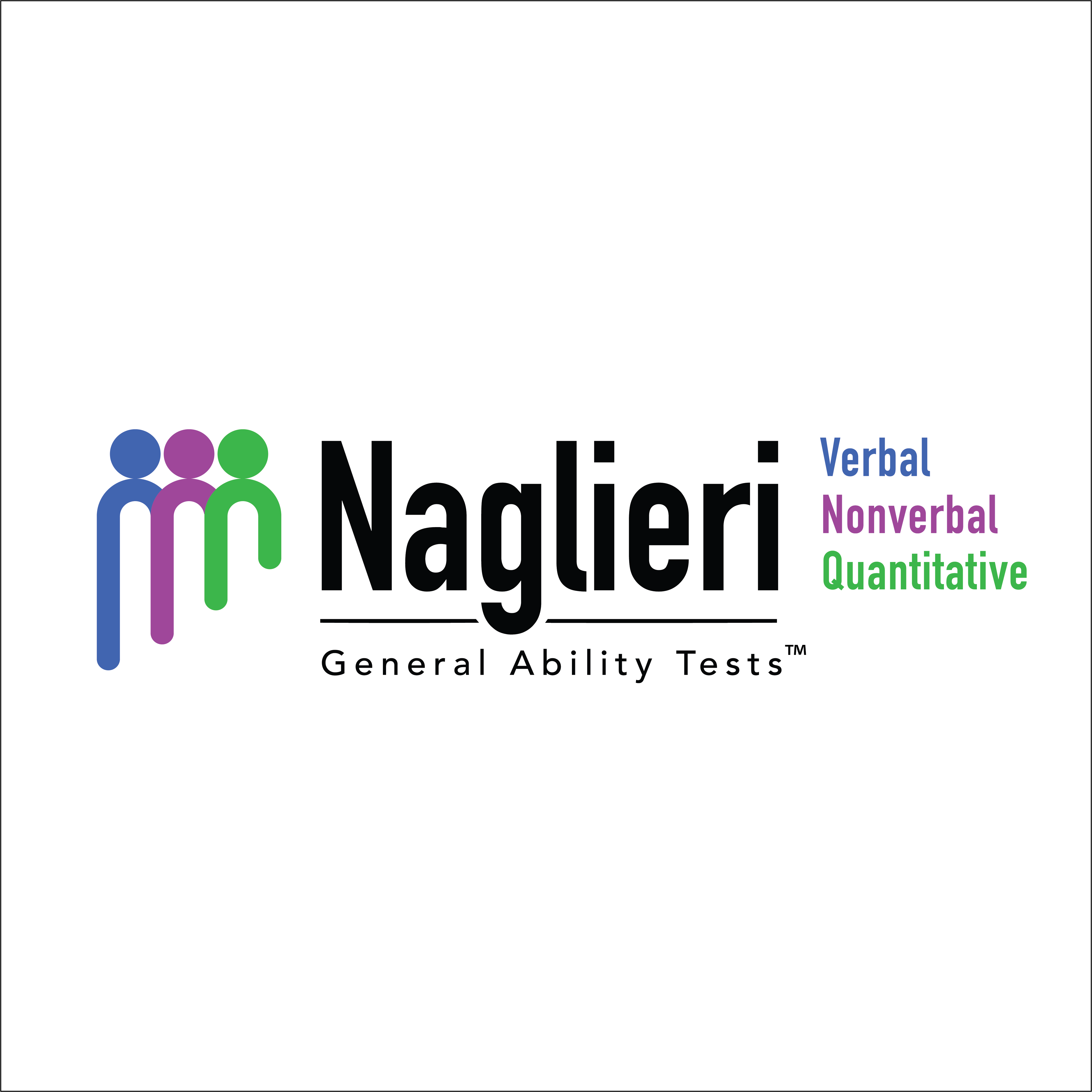
Naglieri General Ability Tests™
| The Naglieri General Ability Tests–Verbal (Naglieri–V: Naglieri & Brulles, 2021), Naglieri General Ability Tests–Nonverbal (Naglieri–NV, Naglieri, 2021), and Naglieri General Ability Tests–Quantitative (Naglieri–Q: Naglieri & Lansdowne, 2021) were carefully designed to remove cultural influences, allow students to solve problems regardless of the language they speak, and significantly reduce the amount of formal knowledge required so that the tests measure how well students 'think', rather than what students 'know.' Each test takes only 30 minutes or less to complete. The Naglieri General Ability Tests are three separate measures that can be used individually or in any combination. For users requiring multiple measures as part of their identification process, each individual test alone can be used as a separate measure. The Naglieri General Ability Tests were explicitly designed to promote equitable assessment by:
|
Age
- Local norms: Kindergarten to Grade 9
- National norms: Kindergarten to Grade 6
Rater Type
- The Naglieri General Ability Tests consist of three performance tests that assess general ability across verbal, nonverbal, and quantitative content areas.
Administration Time
- Naglieri General Ability Tests–Verbal (Naglieri–V): 30 minutes
- Naglieri General Ability Tests–Nonverbal (Naglieri–NV): 30 minutes
- Naglieri General Ability Tests–Quantitative (Naglieri–Q): 30 minutes
Number of Items
- 40 items
Translations
- The directions for administration script is available in English and in Spanish (North America). Please note however that the test itself (i.e., the animated test instructions that students view and the items themselves) does not contain any text and therefore does not require translation.
Qualification Level
- B
Format(s)
- Administered and scored online
Reading Level
- The items themselves use pictures, shapes, and diagrams and thus minimal reading is required to complete the tests. The only text that is present within the test that students must read are numbers.
We understand that each school district has a unique set of needs. That's why we offer a variety of ways to report and utilize your assessment results. Whether you need summarized data for all students, individual reports, or integration with your school's existing analytics and reporting systems, we have the right solution for you. Work with our team to get the information you need in the format that works best for you.
Reliability
Internal consistency (as measured by coefficient omega, ω; Graham, 2006) ranged from .85 to .93 across all grade levels and across all three tests. Typically, values greater than .80 are considered highly reliable. All estimates from the Naglieri General Ability Tests exceed recommended guidelines. Median ω for Naglieri–V = .89; Naglieri–NV = .90; Naglieri–Q = .92.
Validity
Confirmatory factor analysis (CFA) models supported the measurement of broad factor of general ability. Bifactor model fit met or exceeded recommended guidelines (broadly, CFI values close to 1, RMSEA values close to 0; Hu & Bentler, 1999), and factor loadings were statistically significant and positive.
-Naglieri–V: across forms, median CFI = .946; RMSEA = .014 to .029; median g-loadings = .298
-Naglieri–NV: across forms, median CFI = .942; RMSEA = .017 to .028; median g-loadings = .310
-Naglieri–Q: across forms, median CFI = .961; RMSEA = .024 to .041; median g-loadings = .442
-Combination of all 3 tests: across forms, median CFI = .908, RMSEA = .027
Students identified as gifted scored significantly higher than students from the general population (Cohen’s d = 0.93; p < .001 for Total National Standard Scores, indicating gifted students scored nearly 1 full standard higher than students from the general population, characterized by a large effect size).
Fairness
The tests show no evidence of measurement bias; a student’s score on the test is a true reflection of their ability and not a reflection of race or ethnicity when examining scores from White, Black, and Hispanic students.
When controlling for Gender (male/female) and the impact of the COVID-19 Pandemic (pre/post), mean differences between racial/ethnic groups are small to moderate across tests for White vs. Hispanic students:
-Naglieri–V: across forms, Cohen's d = .06
-Naglieri–NV: across forms, Cohen's d = .02
-Naglieri–Q: across forms, Cohen's d = .30
When controlling for Gender (male/female) and the impact of the COVID-19 Pandemic (pre/post), mean differences between racial/ethnic groups are small to moderate across tests for White vs. Black students:
-Naglieri–V: across forms, Cohen's d = .41
-Naglieri–NV: across forms, Cohen's d = .29
-Naglieri–Q: across forms, Cohen's d = .37
Two norm types are available for the Naglieri General Ability Tests:
National Norms involve comparing students to a nationally representative sample for each grade level (Kindergarten to Grade 5). The National Normative Samples include 1,000 students per grade (with Kindergarten and Grade 1 each split evenly into younger and older groups to better represent the rapid age-related maturation effects observed in these younger grade levels). To create the grade-based National Normative Samples, data were balanced evenly by gender and stratified by race/ethnicity and geographic region, within each grade, and cases were statistically weighted to match the 2018 U.S. census figures within 2.5 percentage points.
Local Norms involve comparing students to others at the same grade level (Kindergarten to Grade 9) in their school building or school district. Local norms are most effective when used with districts/schools that do not reflect the national demographic.
To learn more about how to increase equity using the Naglieri General Ability Tests, please see our research overview.
-
Email Address
-
Call Toll-FreeCDN1.800.268.6011US1.800.456.3003
-
International Phone+1.416.492.2627
For more information about the Naglieri General Ability Tests, or to purchase, please contact MHS Customer Service:
E-mail: [email protected]
